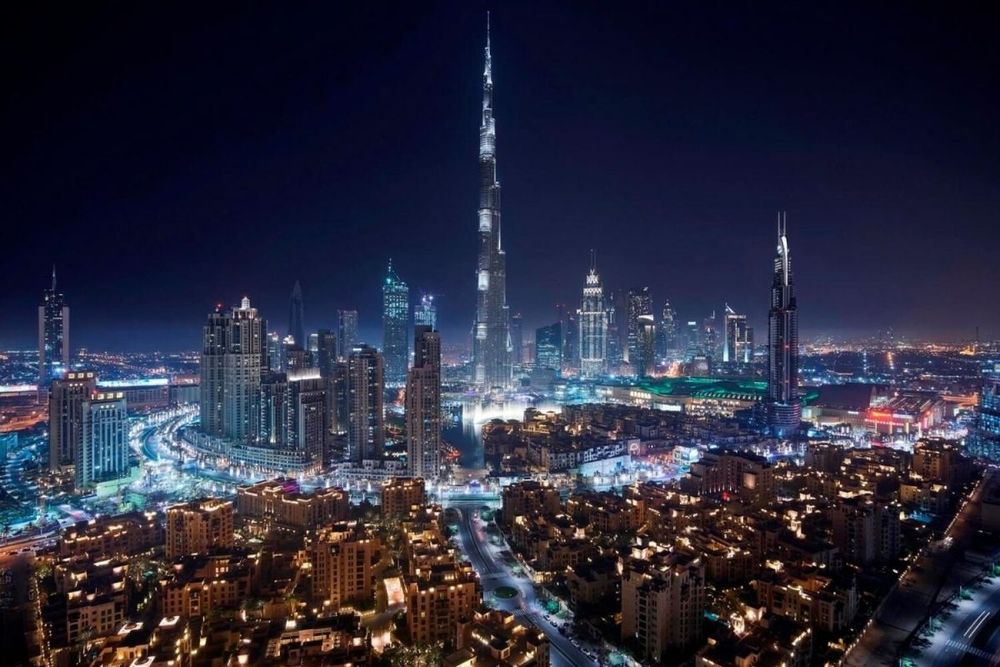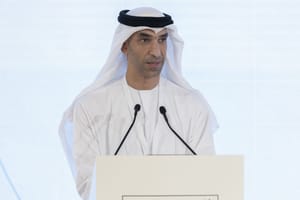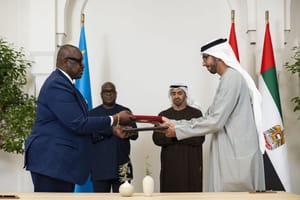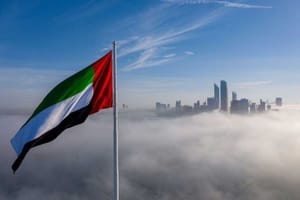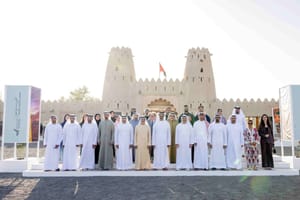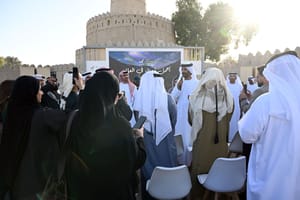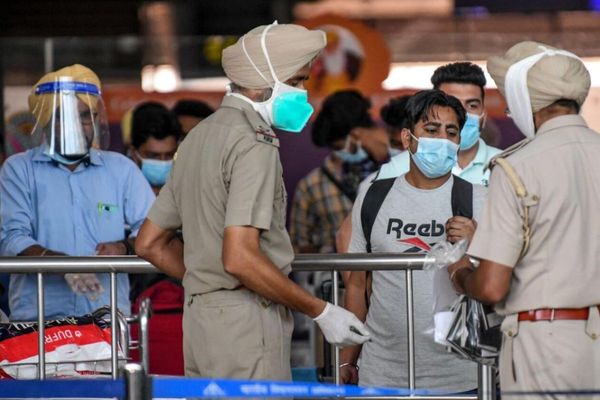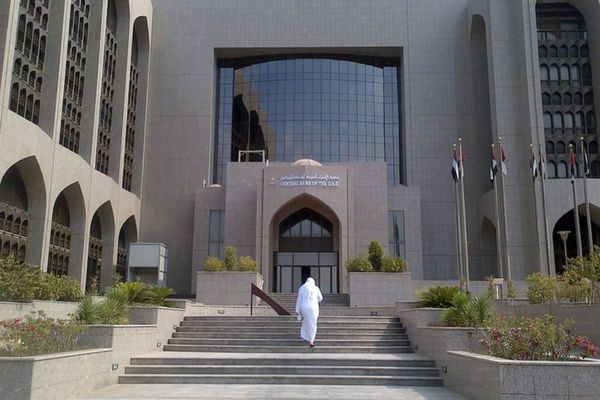Dubai is leading the MENA region on the Global Power City Index (GPCI) 2022, issued by Mori Memorial Foundation’s Institute for Urban Strategies.
After climbing up three spots globally to rank 11th on the index, the emirate also comes 4th globally on Cultural Interaction, improving from its fifth position overall on the parameter in last year’s Index.
The GPCI ranks the world’s major cities according to their ‘magnetism’, or power to attract people, capital and enterprises from around the world. The rankings are derived from scores on six parameters: Economy, Research and Development, Cultural Interaction, Liveability, Environment, and Accessibility.
The GCI’s rankings of the top cities in 2022 reflect the self-reinforcing strength of the world’s leading global cities. The top four cities on the list — New York, London, Paris, and Tokyo — are unchanged from 2021.
H.H. Sheikh Hamdan bin Mohammed bin Rashid Al Maktoum, Crown Prince of Dubai and Chairman of Dubai Executive Council and Chairman of The Executive Council of Dubai, said the improvement in the city’s rankings on the Global Power City Index reflects the leadership’s vision to make Dubai the world’s best city to live, visit and work.
He added that the rankings reaffirm the success of Dubai’s human-centred model of sustainable development.
“Driven by the farsighted policies of His Highness Sheikh Mohammed bin Rashid Al Maktoum, Vice President, Prime Minister and Ruler of Dubai, the emirate has emerged as one of the world’s great metropolises and a prominent global cultural centre, a dynamic hub for creativity and a destination for talent,”
Sheikh Hamdan noted.
“The achievement reveals the richness and strength of Dubai’s vibrant cultural environment and its ethos of inclusive development that has brought well-being to its residents from around 200 nationalities.
"The progress in rankings on ‘Cultural Interaction' shows Dubai’s emergence as a unique bridge between cultures and markets and its ability to promote engagement between people and institutions worldwide. The progress in various international indices encourages Dubai to raise excellence further and enhance its cultural and creative assets,” he added.
Commenting on Dubai’s progress in the GPCI rankings, H.H. Sheikha Latifa bint Mohammed bin Rashid Al Maktoum, Chairperson of the Dubai Culture and Arts Authority, and member of the Dubai Council, said:
“Dubai has evolved an integrated strategy to consolidate its position as a city of choice for cultural practices, experiences and consumption. Driven by the vision of our forward-thinking leadership, Dubai has seen remarkable development as a global cultural hub.
The successful hosting of Dubai Expo 2020, one of the world’s biggest cultural events, and the growth in visitors have added to the city’s cultural dynamism. The city saw more than 11.4 million overnight international visitors in just the first 10 months of the year.
The number of new businesses in Dubai’s cultural and creative industries has also seen significant growth, catalysed by our enhanced value proposition and offerings for this sector. The progress achieved in the ‘Cultural Interaction’ parametre validates the success of our strategic plans and represents a major milestone in our efforts to achieve our leadership’s vision for Dubai.
She added:
“Dubai’s emergence as a major global hub for culture and creativity increases our determination to raise the emirate’s global competitiveness in these spheres.
Guided by our leadership’s vision to transform Dubai into a leading city of the future, we continue to work to create a dynamic ecosystem for our cultural and creative industries and empower talent to contribute directly to the economy’s growth. We also seek to enhance the diversity of Dubai’s cultural offering in order to further enrich the experiences the city offers both residents and visitors.”
The rankings of the top five cities in the ‘Cultural Interaction’ parameter have seen significant changes in the latest GPCI. Dubai has made rapid strides in this category over the last few years.
The issuer of the Index, the Mori Memorial Foundation’s Institute for Urban Strategies, said GPCI 2022 rankings were significantly impacted by how cities responded to the COVID-19 pandemic, which transformed working methods, lifestyles, and economic and cultural activities in cities. Cities in the Middle East significantly strengthened their performance on various parameters.
By tracking changes in international flight frequencies of cities since 2019, the GPCI analysed the responses and strategies of cities and countries to the pandemic. Dubai was the first city to reopen for international visitors since the onset of the pandemic. It also created a safe environment for holding Expo 2020 from October 2021 to March 2022.
Both achievements contributed to the emirate’s rise to third ranking in the ‘Tourist Attractions’ sub-parameter within the ‘Cultural Interaction’ parameter. The emirate also saw significant growth in other sub-parameters, including ‘Number of Foreign Visitors,’ ‘Cities with Direct International Flights,’ ‘Attractiveness of Shopping Options,’ and ‘Attractiveness of Dining Options.’
Although London maintained its #1 position, the city saw its score fall for the second year running. In the Economy function, scores for all indicators in both the "Market Size" and "Market Attractiveness" indicator groups fell. Scores related to Accessibility's "Air Transport Capacity" and Cultural Interaction's "International Interaction" dropped sharply. On the other hand, London moved up to #11 in Environment, placing it one position away from achieving top 10 results across all functions.
New York saw its comprehensive score improve, bringing it closer to #1 London. The city received excellent results in Cultural Interaction's "Tourism Resources" and "Visitor Amenities", jumping over Paris and returning to the #2 position for the first time since GPCI-2020. In Livability, scores for "Working Environment", which had fallen last year, improved this year. In Accessibility, scores improved due to the recovery of the number of passengers on domestic air flights, resulting in the city achieving a #1 position in "Air Transport Capacity".
Tokyo had the fourth largest drop in its comprehensive score among GPCI cities, edging closer to #4 Paris. The city saw its rank fall in 4 of the 6 functions, with lower scores in "Tourism Resources" and "International Interaction" in Cultural Interaction causing a drop to #5 in that function. Unlike New York, the slow recovery of air travel for Tokyo caused a strong decline in its "Air Transport Capacity" scores in Accessibility.
News Source: Emirates News Agency
